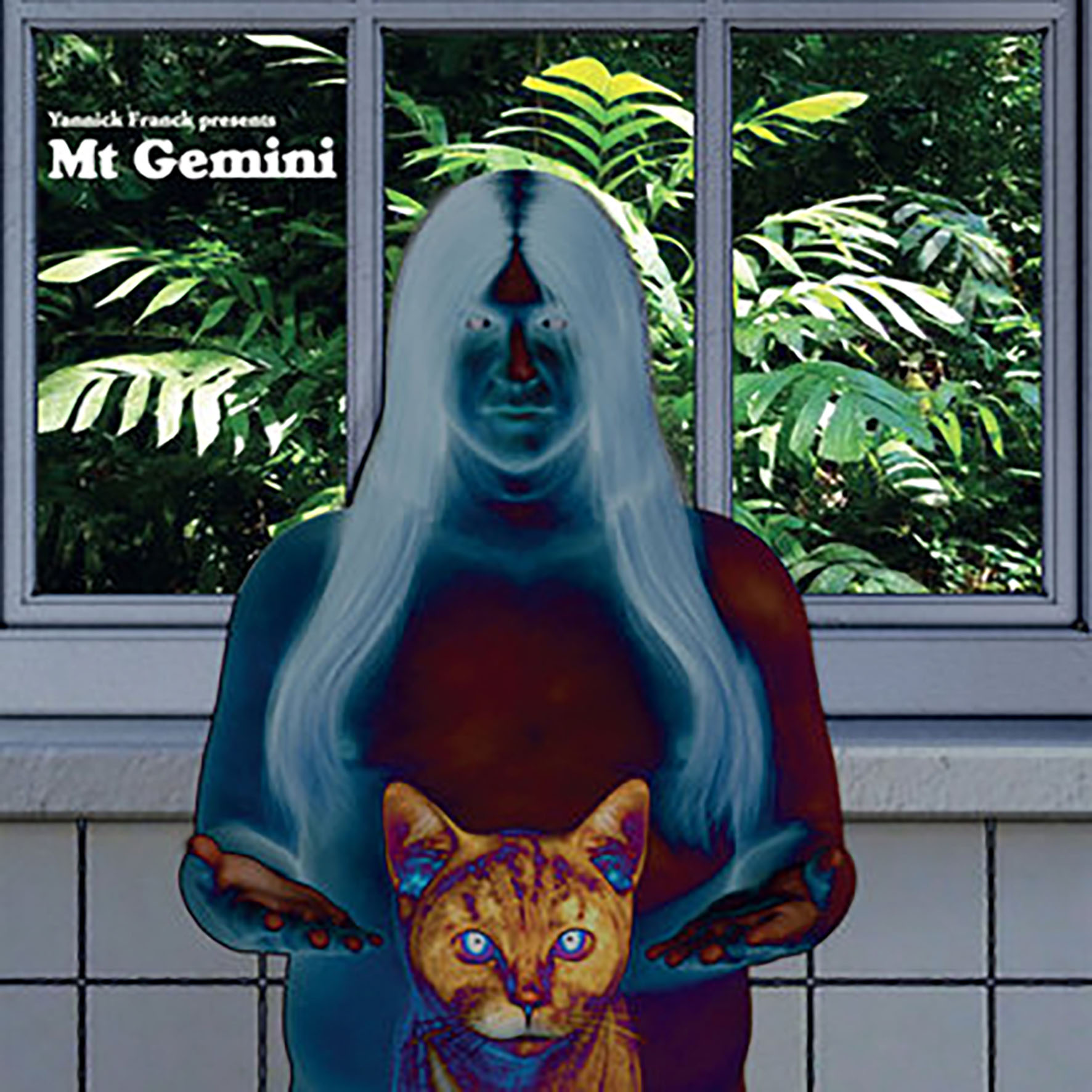Yannick Franck Presents Mt. Gemini,"Just Like A River"
 Jamaican-style dub music has been around for more than half a century at this point, yet new artists continue to emerge who miraculously find new ways to twist and evolve upon the form. The latest example of that phenomenon comes in the shape of this new project from Orphan Swords' Yannick Franck, who ingeniously carves up vintage ska, rocksteady, and skinhead reggae to yield a suite of wonderfully soulful and hallucinatory collages. In some ways, The Caretaker is perversely the closest kindred spirit here, as Franck is a similarly "outsider" deconstructionist: he does not have a treasure trove of master tapes from legendary Kingston studios that would enable him to easily isolate a bassline or vocal melody, yet he inventively turns that disadvantage into an asset. In transforming whole cloth recordings into something of his own, Franck has created something that bears almost zero structural similarity to traditional dub or reggae, but manages to translate its core essence into challenging and playfully experimental abstract art. When he hits the mark just right, the results can be quite brilliant.
Jamaican-style dub music has been around for more than half a century at this point, yet new artists continue to emerge who miraculously find new ways to twist and evolve upon the form. The latest example of that phenomenon comes in the shape of this new project from Orphan Swords' Yannick Franck, who ingeniously carves up vintage ska, rocksteady, and skinhead reggae to yield a suite of wonderfully soulful and hallucinatory collages. In some ways, The Caretaker is perversely the closest kindred spirit here, as Franck is a similarly "outsider" deconstructionist: he does not have a treasure trove of master tapes from legendary Kingston studios that would enable him to easily isolate a bassline or vocal melody, yet he inventively turns that disadvantage into an asset. In transforming whole cloth recordings into something of his own, Franck has created something that bears almost zero structural similarity to traditional dub or reggae, but manages to translate its core essence into challenging and playfully experimental abstract art. When he hits the mark just right, the results can be quite brilliant.
I have been listening to this album in fairly heavy rotation for about a week now and I have been wracking my brain for an apt and succinct way to summarize Franck's aesthetic with Mt. Gemini. Plenty of great words and phrases like "weirdly sensuous," "phantasmagoric," "obsessive," and "noirish" have certainly been fluttering around my head, but I ultimately came up empty-handed.There is a strong likelihood that my mind has finally grown weary of me and wishes I would focus my attention on my actual life, yet that is not the whole story, as these five songs are a deliciously shapeshifting and elusive fun house of surreal transfigurations that defy any general description.There is certainly a consistent thread of smoky, twilit unreality that runs through the album, yet its collision with the bright, melodic hooks of vintage Jamaican dancefloor grooves leads down some very eclectic and divergent paths (with varying degrees of success, of course).The most striking and immediately gratifying manifestations of Franck's bold vision happen right out of the gate with "Copy Cat" and "What Can I Do?".
In the former, a lazily shuffling groove appears and obsessively repeats like a woozy slow dance in a state of suspended animation.Soon, however, a much catchier and more upbeat sample barrels right through it and the piece blossoms into a swirling, delirious maelstrom of warped textures, tape hiss, and heady drones.It kind of feels like a classic rocksteady hit being sucked into a black hole and being ripped completely apart except for its tenaciously repeating chorus.My favorite piece, however, is the far simpler "What Can I Do?".The piece starts off as kind of a spectral, shadowy cousin to the heady dub excursions of Moritz von Oswalt's Rhythm & Sound project, approximating an incredibly worn cassette of slow, heavy reggae in which the "industrial" sounds of the struggling tape machine almost overpower the music.Gradually, however, a different groove starts to fade in that is every bit as corroded as the first, yet blossoms into a lumbering, blown-out juggernaut of hiss-ravaged rhythm.Throughout it all, an irrepressible falsetto whoop faintly loops over and over as a lingering vestige of human warmth at the core of something far closer to mechanized horror than reggae.
The next two pieces make even that extremely tenuous link to the original material seem like quite a lot, plunging deep into a rabbit hole of demented abstraction.For example, "Chicken Merry" sounds like a hallucinatory and obsessive loop of barnyard sounds being slowly engulfed in infernal, subterranean groans and throbs.A flickering semblance of a song eventually does emerge, but the surrounding music is too deranged for it to even matter at that point (though it is admittedly a nice bit of compositional sleight of hand).Elsewhere, "Just Like A River" sounds like a wobbly, ruined tape of massive, clanking machinery fed through a wah-wah pedal.The endearingly weird closer ("Long Shot Kick the Bucket"), however, unexpectedly returns to more human territory to end the album on a perversely radiant, dreamlike note, unfolding as a hypnotically looping and overlapping horn motif that fades in and out of focus.In its final moments, a sleepily warm bass line even takes shape to end the album with something that approaches genuine soul and beauty.
Notably, I think there are probably only twenty minutes of legitimately great music on this album, yet I am reluctant to describe it as flawed or uneven, as I am fundamentally delighted by Franck's vision and fascinated by his execution.Every single one of the pieces is a striking example of transformational wizardly, going beyond mere deconstruction to create something deeply lysergic that is light years away from the raw material that it was birthed from.Moreover, Franck is consistently inventive in his alchemy, studiously avoiding the temptation to repeat the same tricks or head in a direction that has already been explored: each piece is treated like a completely unique foundation for a new vision to organically grow from.It perversely reminds me of the hackneyed joke about Michelangelo sculpting David ("Oh, it was easy–all I did was chip away everything that didn't look like David.").Though it is intended as humor, there is a weirdly viable thought process at the heart if it and it feels like Franck exploited it here: I am sure making Just Like A River was not easy at all, but it does seem like he isolated pieces and fragments that fascinated him and allowed their individual traits to guide their ultimate journey to a significant degree.As far as music as entertainment is concerned, that strategy does not always lead to an optimal place, but it certainly proves to be fertile ground for challenging and occasionally revelatory sound art in the case of Just Like A River.
Samples can be found here.



